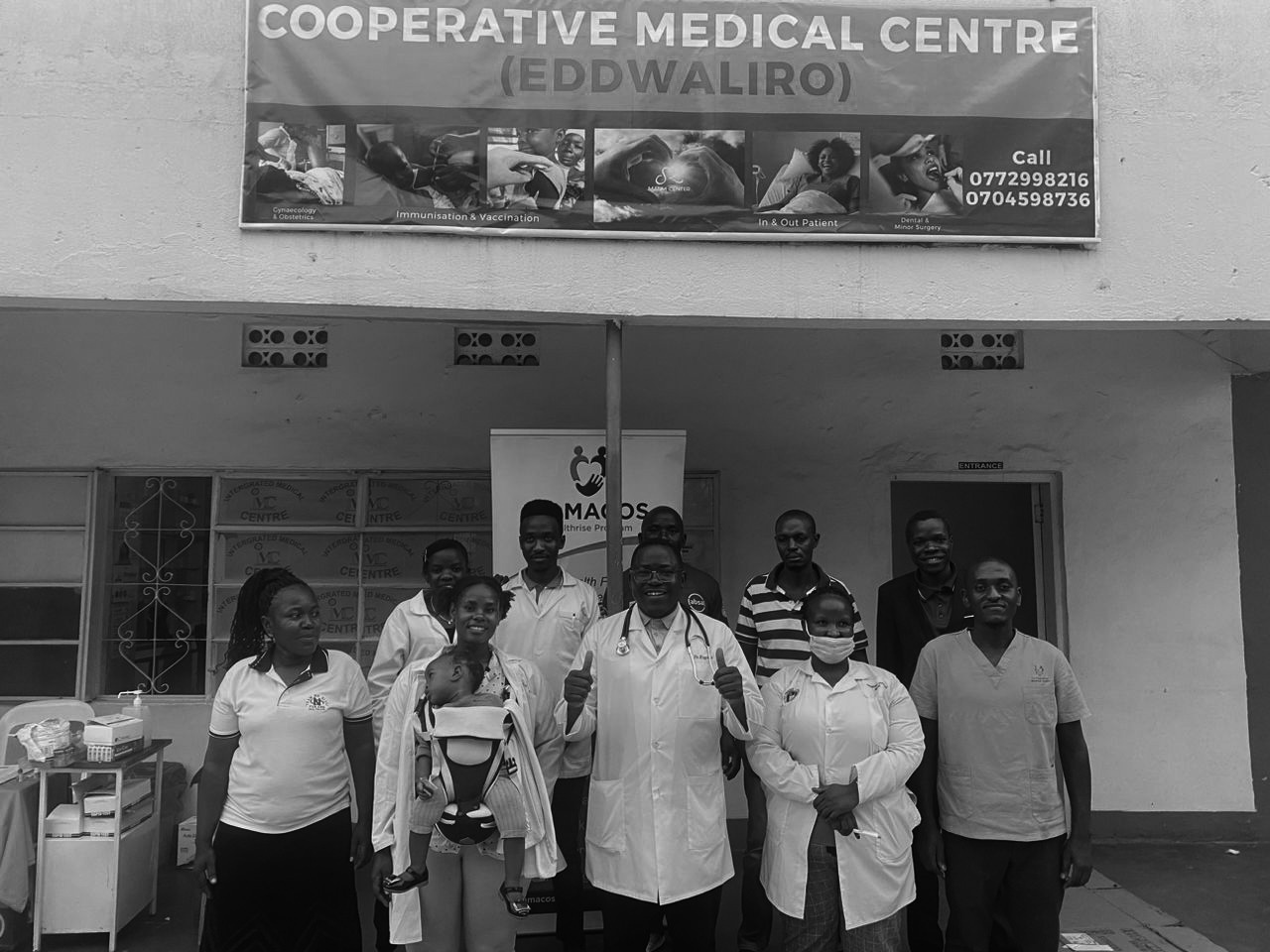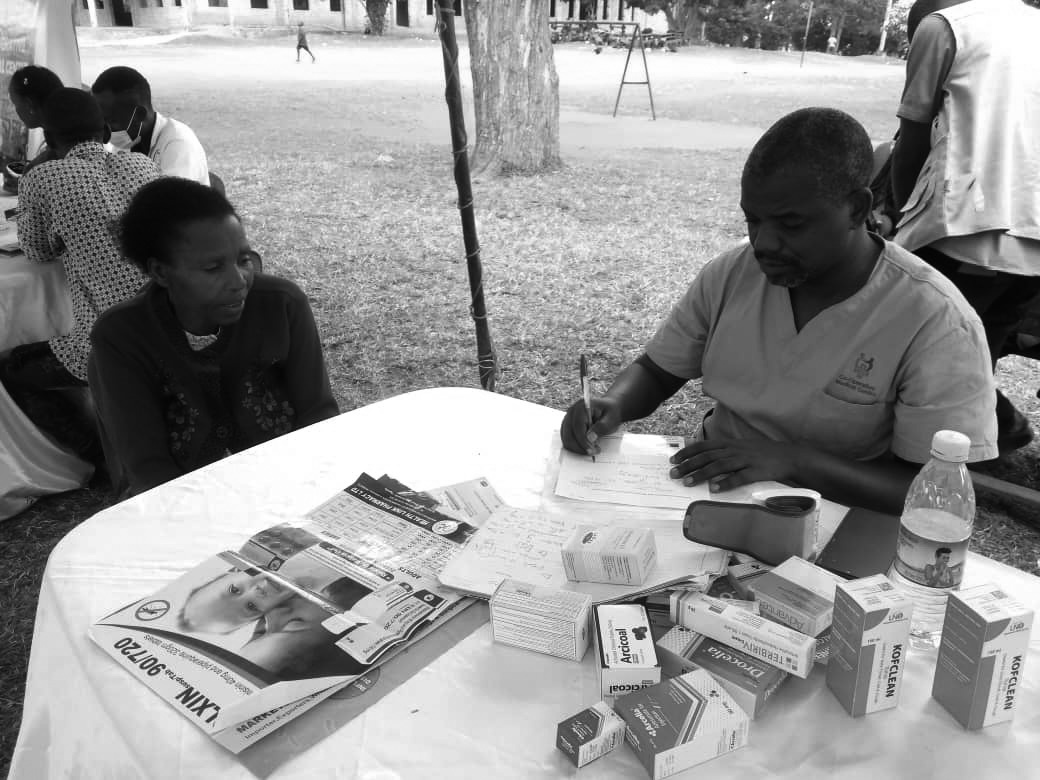La entidad en datos
Main activity: Providing healthcare services to members and underserved communities.
Year founded: 2019
Legal structure: Health Cooperative
Number of people currently employed: 18
Region/Country in which it operates: Uganda
Category: Health

CLAVES DEL ÉXITO E IMPACTO EN LA SOCIEDAD
Kampala Medical and Allied Health Workers Cooperative Society ltd (KAMACOS) is a legally registered health cooperative in Uganda, established in 2019, with a mission to improve access to quality, affordable healthcare for under served rural and urban populations. Operating under cooperative principles, KAMACOS envisions becoming a leading healthcare, education, and research institution in East Africa.
Its core activities focus on accessible healthcare for vulnerable communities, health education, nutrition promotion, establishing cooperative health facilities, conducting medical camps, mobile clinics, and research to address healthcare challenges. It is a medical workers cooperative that provides health services to its members and the community.
KAMACOS began its outreach in 2019, impacting 5,000 beneficiaries. By the end of 2024, this number had grown to 80,000. Initially centered on community-based medical camps, the organization has expanded to include a cooperative health facility, mobile clinics, and health education campaigns.
Keys to KAMACOS success include:
1. Strong Community Collaboration: We bring affordable healthcare closer to communities, fostering trust through accessible, community-centered solutions.
2. Active Community Involvement: Community members actively participate in decision-making, enhancing service relevance and ownership.
3. Dedicated and Committed Membership: Members remain engaged due to inclusive meetings and valued contributions in cooperative decisions.
4. Effective Feedback Mechanisms: Continuous feedback from clients helps improve services, ensuring they meet the community’s needs.
5. Affordable Health Assurance Model: A low-premium system provides timely, quality healthcare, attracting new members and ensuring sustainability.
6. Innovative Cooperative Healthcare Model: A member-owned, community-driven approach enhances healthcare access and affordability.
7. Strategic Policy Alignment: Our five-year plan aligns with Uganda Vision 2040, NDP III, SDGs, and the Ministry of Health’s Strategic Plan.
8. Strong Governance & Compliance: Transparent structures ensure legal compliance, accountability, and operational efficiency.
9. Cooperative Health Facility: We established Uganda’s first Cooperative Medical Centre and Health Assurance Package, creating jobs and supporting cooperative activities.
10. Expansion & Partnerships: KAMACOS now reaches the Eastern, Northern, and Central parts of Uganda while gaining international recognition in healthcare innovation.

DESAFÍOS ENFRENTADOS
Despite its successes, KAMACOS faces challenges such as financial constraints, inadequate healthcare infrastructure and equipment, low medical workers and community awareness about health cooperatives, and limited opportunities for improving cooperative management capacity.
Lack of facilities like camping tents for medical workers sleeping in especially when we do camps in hard to reach areas where accommodation is not accessible.
Van to transport the medical and support staffs during community outreach camps.
Lack of Ambulance to facilitate referrals when we encounter serious cases that requires transfer for minitoring and better management in hospitals.
We work on patients in open tents or shelters during community outreaches and medical camps depriving patients of their right to privacy. This makes patients unconfortable to open up their problems/diseases or even examining the patient is difficult, leading to missed diagnoses.
ESCALABILIDAD Y REPLICABILIDAD
The KAMACOS model is both scalable and replicable because of its community-driven, cooperative-based, and sustainable approach to healthcare. To expand and replicate this model successfully, the following strategies can be applied:
Internal scalability:
– Expanding Cooperative Health Facilities: Establish additional Cooperative Medical Centers in new regions to increase access.
– Strengthening Partnerships that can support our work: Collaborate with government agencies, NGOs, and international organizations to secure funding and technical support.
– Leveraging Technology: Implement telemedicine, digital health records, and mobile health solutions to reach remote areas efficiently.
– Training and Capacity Building: Train healthcare providers, cooperative leaders, and community health workers to maintain quality service delivery and embrace the health cooperative model.
– Enhancing Health Assurance Coverage: Increase membership in the low-premium health assurance model to ensure financial sustainability.
External Replicability:
– Customizing the model to Local Contexts: Adapt the model to align with the specific healthcare regulations, cultural practices, and economic conditions of the target country.
– Engaging Local Stakeholders: Work with local cooperatives, government institutions, and health professionals to ensure community buy-in for the health Cooperative model.
– Policy and Regulatory Alignment: Ensure compliance with national health policies, cooperative laws, and international health frameworks.
– Knowledge Sharing & Best Practices: Documentation and sharing of best practices, lessons learned, and case studies to guide new implementations.es, our model is scalable and replicable.
CONCLUSIONES Y MORALEJA
KAMACOS has transformed cooperative healthcare in Uganda, improving access and affordability through a structured, resource- efficient model. Key lessons include economic-social integration, strategic planning, and governance. Mobile clinics and partnerships have expanded rural healthcare, while investment in infrastructure, workforce training, and advocacy ensures sustainability. Despite financial hurdles, KAMACOS serves 150,000+ people annually, pioneering Uganda’s first Cooperative Medical Centre. With plans for a hospital and integrated health financing, it continues to drive equitable, community-led healthcare solutions.